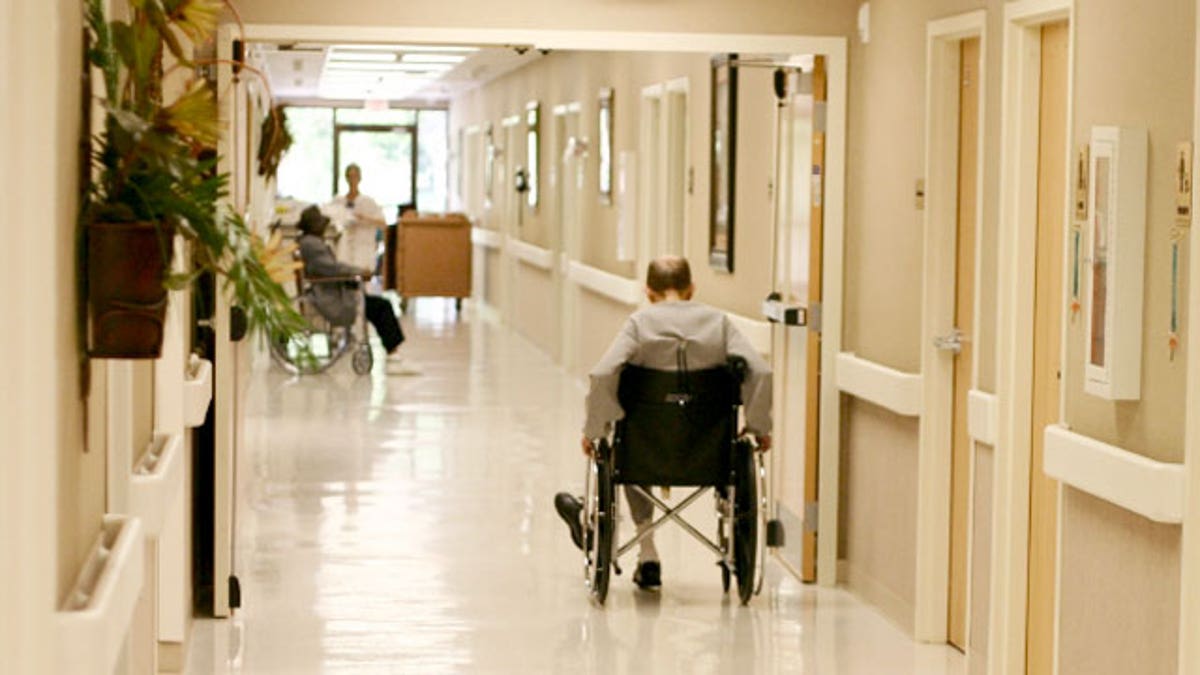
At least one in five nursing home residents may endure verbal or physical abuse from their roommates or other residents, a U.S. study suggests.
Researchers examined data on 2,011 nursing home residents and found 407 of them had been involved in at least once occurrence of abuse involving another resident during the four-week study period.
Verbal taunts were the most common, accounting for about 45 percent of these cases, followed by physical assaults, which made up 26 percent of incidents.
"Much (but not all) of inter-personal aggression in nursing homes stems from the fact that people, many of whom have dementia and other neurodegenerative illnesses, are being thrust into communal living environments for the first time in decades, if ever," said lead study author Dr. Mark Lachs, a researcher at Weill Cornell Medicine and director of geriatrics at New York Presbyterian Health Care System.
"While memory loss and other cognitive problems are cardinal features of dementia, the behavior problems that accompany dementia are notorious triggers for nursing home placement," Lachs added by email. "When many such people are asked to share common spaces or become roommates, these situations can occur."
To assess the prevalence of abuse involving residents, Lachs and colleagues examined data from interviews with staff and residents of five urban and five suburban nursing homes in New York, as well as information from medical charts and accident or incident reports.
To include residents with mental health issues or language barriers that might make consent and participation difficult, researchers also interviewed family members or legal guardians of some residents.
Residents were about 84 years old on average, and 73 percent were women.
Roughly 16 percent of them resided in a unit for dementia patients.
While verbal and physical abuse was the most commonly reported type of abuse residents suffered from other residents, about 20 percent of incidents involved invasion of privacy, researchers report in the Annals of Internal Medicine.
In about 4 percent of cases, one resident directed menacing gestures or facial expressions at another resident. Slightly less than 3 percent of cases involved some form of sexual abuse.
The most common types of verbal aggression were screaming at another resident and using inappropriate words.
With physical aggression, the most common cases involved hitting or pushing another resident.
The incidents of invasion of privacy typically involved one resident entering another resident's room without permission and taking or touching property without asking.
One limitation of the study is that researchers relied in part on reports of staff, other residents, family members or legal guardians to verify when incidents occurred, the authors note. It's possible that abuse is much more prevalent than the study findings suggest, the authors conclude.
Often, nursing home staff may not have adequate training to deal with older adults with cognitive and psychiatric issues like dementia, depression, and delirium, said Dr. XinQi Dong, a researcher in aging at Rush University Medical Center in Chicago and coauthor of an accompanying editorial.
It's possible that a more narrow definition of abuse might make this look less prevalent because the study included any situation that caused distress among one resident as a potential case of abuse by a fellow resident, Dong said by email.
"At the same time, we must recognize that residents may be both victims and perpetrators of elder abuse and avoid blaming victims or resorting to interventions of convenience, such as the use of chemical sedation and physical restraints," Dong said by email.
Families should look for nursing homes with rooms or units set aside for dementia patients or residents prone to aggressive behaviors," said Dr. Janice Du Mont, a public health researcher at the University of Toronto who wasn't involved in the study.
"During a tour, see if there is adequate open space or if the facility feels overcrowded," Du Mont added by email. "Assess how many residents are in each room, if there are separated recreational areas, and how many staff you see on duty."
